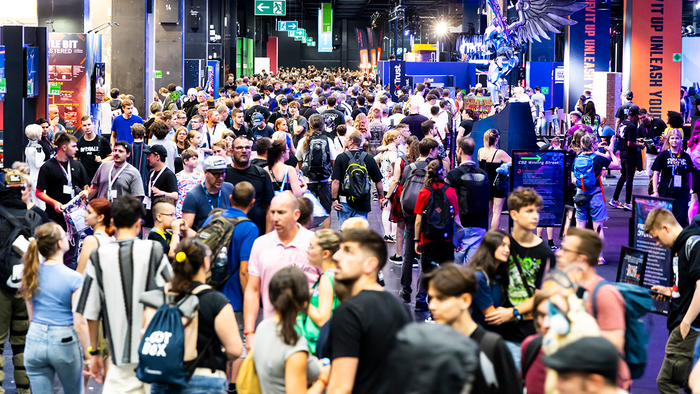We're back, and I mean that in a very literal sense. We've just returned from Gamescom 2024 where this (rather fatigued) editor had a wonderful time catching up with old faces and new.Most of our week was spent flitting between the business areas, chatting all things video games with developers, publishers, studio leaders, and pretty much anybody PR would let us in a room with. Our ongoing Gamescom coverage is right here, so do tuck in.Outside of the show, the flags were cracking, the bratwurst was sizzling, and the Kolsch was flowing. I know, because that's pretty much all I could hear from my hotel room in Alter Markt. Yes, I chose to slap myself in the middle of a market square bustling with interlopers whose sole purpose in life was to prevent me from sleeping. Yes, it was a colossal mistake. Yes, I resent everyone involved. Will I learn from that fatal error and book a room in a more sedate location next year? Look, I'll give it a shot.Mistakes are opportunities for growth, and that rather fortuitously brings me onto the subject of this edition of Patch Notes: how can the game industry learn from its own repeated failings to ensure we don't just 'survive until 2025,' but thrive in the years beyond?It's a question I desperately needed to answer heading to Gamescom. I'd seen the phrase 'survive to 2025' tossed around on social media, and it seems to imply all the industry needs to do is collectively endure until the turn of the year. At that point, I suppose, the chaos that has dominated the news cycle since 2023 (layoffs, funding woes, and studio closures) will dissipate into the aether.A warm sun will rise on a rejuvenated industry, ushering in a new era of stability and prosperity. Those who remain will breathe a collective sigh of relief, safe in the knowledge that, this year, things will be different. It feels like optimism bordering on willful disbelief.Many of those I spoke with at the show agreed. There was a sense the industry too often surrenders itself to a vicious cycle of growth and collapse perceived as unavoidable. It isn't–but only if we learn, and I mean really learn, from our mistakes. To help us do that, I collected reams of advice from industry experts that might hopefully allow us to break the cycle.
The view from the show floor: Long term survival will demand creative clarity, frequent reality checks, and the slow demise of capitalism
"If the question is 'what do we do about capitalism?' then you're into a very different set of economic, philosophical, and political issues," says Ustwo Games lead producer John Lau.He suggests the industry needs to address the "incentivization structures" that are currently in place on a commercial level in order to survive. It's a big ask, but on the upside, building incentivization structures is exactly what developers do for a living."What is it we can do to identify where things aren't working and then slowly chip away at those things? If that feels too big, I would say it's about understanding you are at the mercy of these forces," he adds. "You cannot ignore them. You cannot ignore the fact you're in a commercial industry. Therefore you must educate yourself. One has to build commercial literacy–among colleagues and co-workers."Building literacy means fully engaging with the issues that have smashed through the industry like a wrecking ball. Burying our heads in the sand is no longer an option. "You can't just say 'hey, look, I'm an artist. I'm making art. I've got big ideas.' Yes, that's fantastic. But the image of a game developer as a lone artist [is outdated]," he continues."If that's what you're doing, you are leaving yourself incredibly vulnerable to these flawed, dysfunctional structures. You have to understand the commercial environment you're working in is part of the problem–as much as [the creative question of] 'how do I make a person feel this way?'"Hooded Horse chief product officer Ashkan Namousi says longevity is rooted in sustainable business practices. It's a soundbite we've heard often. Mainly when companies are punting thousands of workers out of the door in pursuit of "sustainable growth." But for Namousi, a sustainable enterprise is one governed by leaders who aren't over-zealous, under-prepared, and dancing to the intoxicating tunes of external stakeholders."It's about always focusing on effectiveness and cost effectiveness, and trying not to get carried away with unfettered creativity and ambition–without reflection and without control," he says. "[That ambition] is constantly fed into by other stakeholders who want a stake in what you do. They almost way you to say 'I need $20 million,' because they think if you're going to have 400 percent ROI, so they'd much rather go in with $20 million than $2 million so they can take a bigger share of revenue, they can have a bigger buyout, they can get the IP–all that jazz."Focus on being effective and creating new ideas for you and your company. Stay focused on 'what is the kind of game you're making? What is the target audience?' Don't just take any deal that comes your way. Believe in your creative vision and the potential of the game. You also need to have a reality check. What happens if it doesn't [find success]?" Image via Gamescom
Image via Gamescom